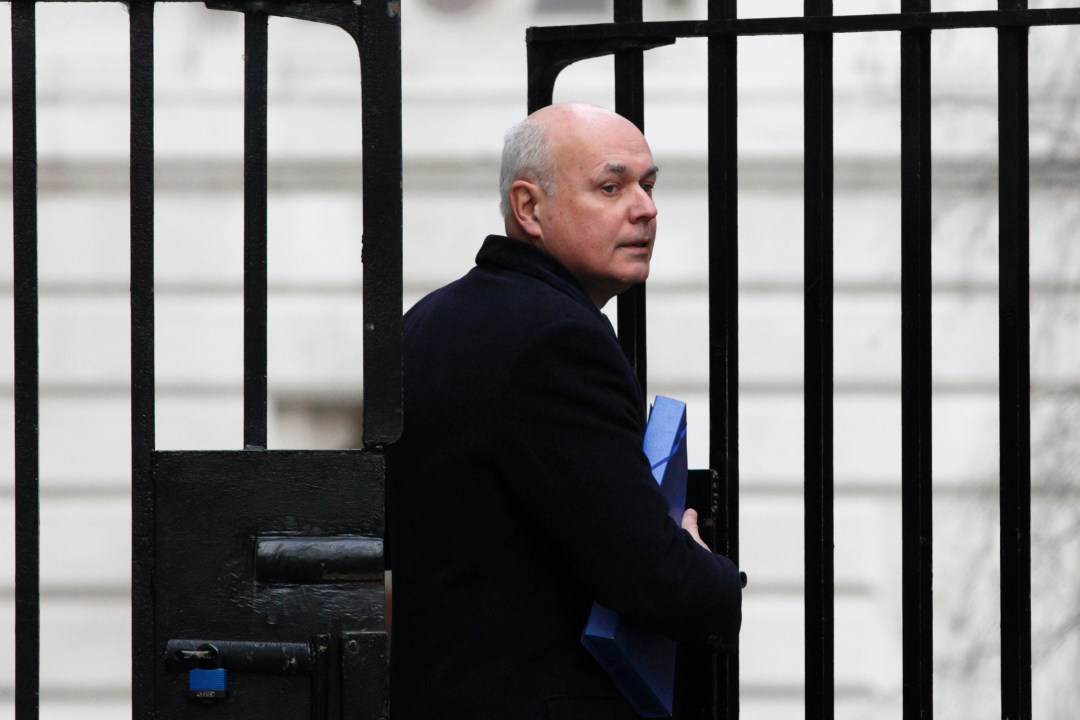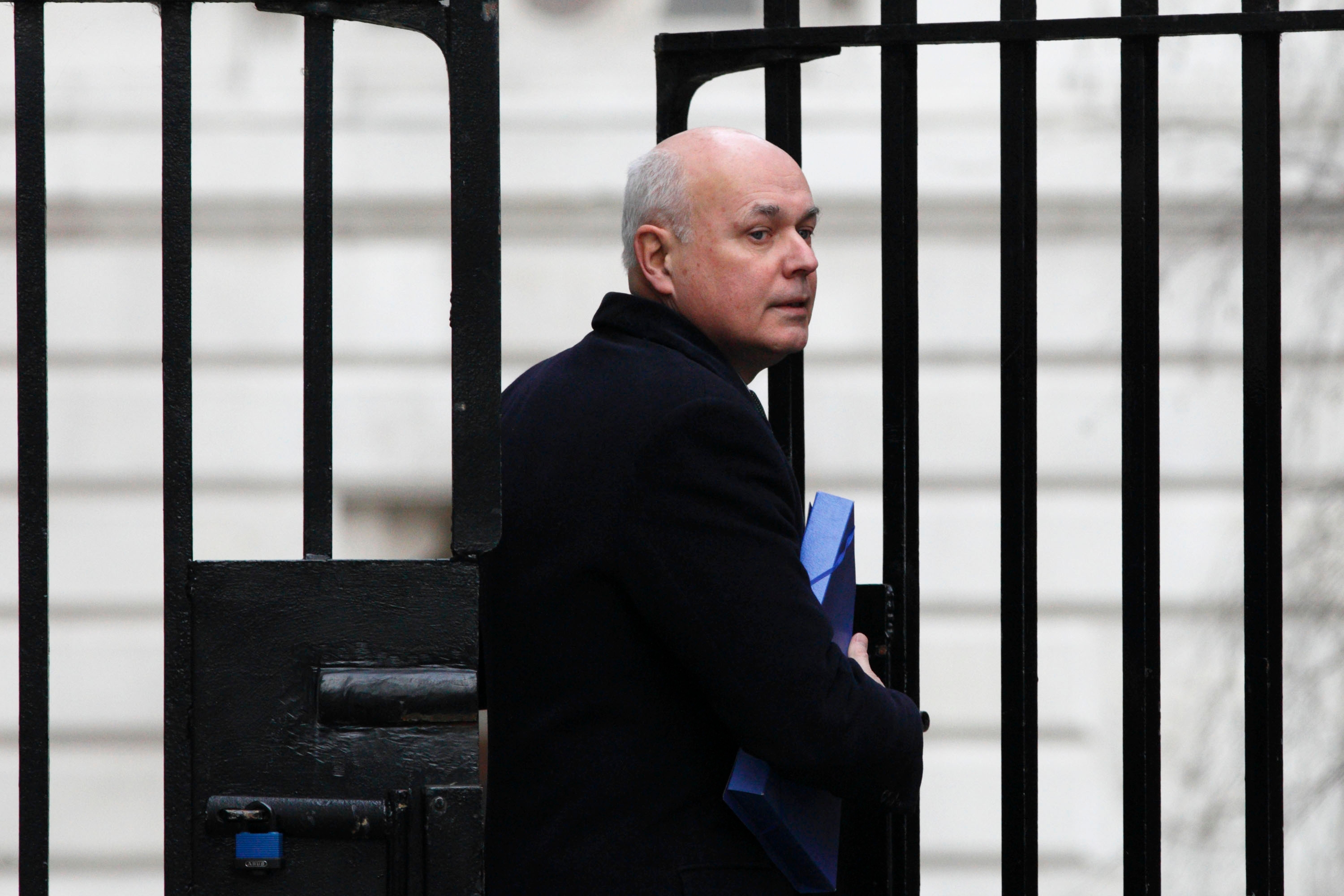On balance, Iain Duncan Smith’s spell as Tory leader can’t be remembered as an unmitigated success. Be that as it may, sometimes there are second acts in political lives and, just occasionally, these are worth celebrating. IDS is one example of this.
Nevertheless, even a man as palpably decent and well-meaning as IDS doesn’t always pitch his argument about welfare reform in the best, most sensible or plausible fashion. This is unfortunate, not least because it allows his opponents to question his good faith.
And good faith matters in politics. Especially when you’re attempting to overhaul welfare. At the best of times this is a sensitive issue requiring a deft touch. And these are not the best of times.
So much of the argument about welfare reform is bogus and dishonest that one sometimes despairs that these issues can be discussed at all, far less that government policy might be considered with even a modicum of good faith.
It must be admitted that IDS’s colleagues at the Treasury do not always help his cause. The Chancellor and his acolytes chief concern is that welfare bills are reduced. This is not in itself a reprehensible desire but it has the unfortunate consequence of making it easier for Duncan Smith’s opponents to make it seem as though IDS is just a hatchet-man unaware of the difficulties inherent in living on the margins of society and cheerfully indifferent to human misery, thwarted potential and the crippling consequences of everything that comes with all of this.
It produces a dispiriting spectacle. Means are not the same as ends. It’s one thing to criticise methods but if you routinely ascribe the bleakest, darkest motivations to policy ends it becomes all but impossible to have a sensible conversation at all.
And on this we should surely all be able to agree: it would be a good for Britain is welfare rolls were lower. Good for the government’s balance sheet but, more importantly, good for social cohesion and welfare recipients themselves.
The right too often makes it seem as though the majority of welfare recipients are layabouts spongeing off the “system” or otherwise exploiting their “hard-working” fellow citizens. Doubtless there are some people who belong in this category. But they are – and always have been – a minority and a small minority at that. Their numbers should not be exaggerated and doing so does no-one much good.
Because – and really this should not have to be said but, alas, it does – most people receiving some kind of state benefit don’t find themselves living in luxury. Living on benefits is not fun. Nor, especially for families, is it easy. It’s not the kind of existence many people would choose for themselves, far less dream of one day achieving.
If there’s an unmistakable ugliness to much of the right’s rhetoric on welfare there’s a depressing complacency to much of the left’s. Too often the left treats welfare recipients as powerless, hopeless, victims. Too often the left automatically presumes that measures designed to help the workless into work are inspired by the worst of motives. So, bizarrely, asking if benefit-claimants might be fit to work becomes an exercise in state-mandated humiliation. And anyway, if shelf-stacking at Tesco is all that’s on offer why should anyone be encouraged- nay, forced! – into such menial employment.
Well, shelf-stacking is not great. It – and jobs like it – are few people’s idea of a life fulfilled. Nevertheless, it is better than nothing. It is a start. Only snobs – of whom there are as many on the left as on the right – can think it so. It is not enough but it is a modest start.
This is not a partisan point. Nor is this: boasting about the level of welfare payments focuses on the wrong part of the problem. Unfortunately, this is what IDS has done in Scotland today. While acknowledging that the still-with-us consequences of the decline of heavy industry explain why, quite reasonably, some areas both require and should require more welfare assistance, he suggested an independent Scotland might have to choose between raising taxes or cutting benefits.
Look, even if this is true (it might be!) this is not a great argument for the Union. Reject independence to protect your benefits!
Then again, the SNP counter is equally dispiriting: Vote for independence to protect your benefits!
In each case – predictably perhaps – the emphasis is on inputs not outcomes, supply not demand. But it is demand that is the problem, not supply. And it is a problem because this demand is a sign of deep-rooted failure. We should be ashamed of our benefits bill. Not because it is too high but because too many people find themselves in circumstances that require state-support. This is a bipartisan failure too.
To be clear, this is not a question of individual cases. I have no doubt that the benefits bureaucracy will fail – even sometimes humiliate – individuals. I am wholly confident it will make mistakes, that it will fail to take proper account of individual circumstances. I am sure there will be injustices. It is depressing that a system that aspires to make the dignity of work pay will often treat individuals with so little dignity. Wherever possible these errors – for there will be errors – will have to be corrected.
But we should not make the mistake of confusing the particular with the general. No-one (or, I suppose, almost no-one) actually advocates removing the social safety-net but nor does anyone of sense desire a net from which it becomes all too difficult to escape.
Of course, it is extra-difficult to refashion welfare in times of economic distress and uncertainty. That’s one reason why IDS has to win his battles with the Treasury. Welfare reform may actually, in some circumstances, increase the short-to-medium-term costs of welfare. That’s not necessarily a sign of failure if the appalling costs of long-term welfare-failure are reduced.
It may be that IDS’s Universal Credit proves insufficient to the task. But complaining, as Nicola Sturgeon did this morning, that the government is hell-bent on “dismantling welfare as we know it” gets everything wrong. Welfare as we know it is failing too many people. It takes a special brand of well-intentioned heartlessness to believe (or claim, the two being different) otherwise.
Welfare is a disgrace not because benefits are too readily available or too generous (they’re not) but because too many people find themselves in situations in which they must depend on welfare or leading lives devoid of hope and work and dignity.
Fixing this is a ten-year project and it’s not a matter of welfare policy alone. Joined-up government has a bad reputation for all the obvious, often correct, reasons. Nevertheless, the link between education reform and welfare reform is surely obvious and necessary. In each case it is a matter of lifting people up, not cutting them adrift. It is also, of course, hard-pounding and difficult work and setbacks and sobering failures will abound.
Nevertheless the effort is a worthy one and, between them, IDS and Michael Gove are pretty much the best arguments this government has going for it. They are the most important people in power today.








Comments